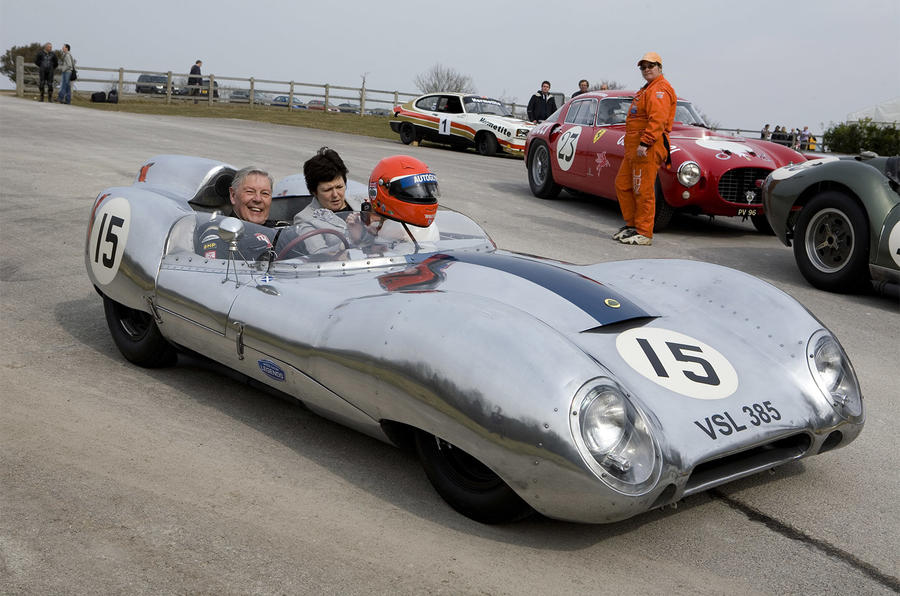It’s December 2007, and I’m watching Queens Park Rangers play Colchester United at Loftus Road. More specifically, I’m watching Teddy Sheringham – who has a Champions League title, three Premier League titles and 51 England caps to his name – feature in what’s comfortably past his 700th match.
He’s 41 years old and slower than all around him, perhaps including the referee, but I can still see the sparkle of his touch and his mind. What a pleasure, what a privilege.
I like it when a sportsperson stays in their game for as long as they can, for the love of the sport and because they’re a long time retired. Why quit before you have to?
There is the whole “I would rather people ask why I retired, rather than why I don’t” thing, but I’ve always felt more affection for those who stick in the game for as long as they can. Hang up your helmet after one Formula 1 title if you like, but give me Teddy or Barrie ‘Whizzo’ Williams, who was still racing cars until just a year before his death at 79, any day.
It shows they love doing it as much as we love watching it. Even as an occasional plodder around a kart or race track behind people much better than me, and sometimes only managing to enjoy it several days after the event, I can’t imagine ever turning down a race opportunity.
But I think, as of recently, I get it. I was on an event a while ago (they all seem a while ago now) with a former F1 and GT driver who’s now a brand ambassador for a car maker. I won’t name him because he had had a glass of wine and might not want to be quoted in case he changes his mind.
Would he ever do more endurance racing, I wondered? “The trouble is,” he didn’t really allow himself to be anonymously paraphrased, “I’ve raced against the best drivers in the world. Now I could be up against amateurs, which can be really frustrating. You don’t know what they’re going to do.”
Okay. If you’ve challenged at the sharp end of an F1 grid, I can see how it could be difficult, irritating, maybe even dangerous to race a middle-aged bloke whose ability to push money around all week is what allows him to push a GT3 car around at weekends.













Join the debate
Add your comment
Hot hatches and elderly race drivers.
don't sell like SUV so manufacturers aren't gonna waste their time and money developing a type of vehicle that people no longer really care about and they will not make so much money out of it as a "thing". Enthusiast cars for the masses are over now, unless you buy something from the past or spend a lot of money on a £££,£££'s mega . The manufactures know that people generally don't care about sportiness (which is clear by the number of SUV they sell) and they will give the majority of the people what they want and the rest can do something else.
With regards to when to stop driving like a lunatic racing driver will depend on any accidents you may or may not have had and what is likely to happen to you if you have a bad accident at an elderly age compared to the identical thing happening to someone younger, but nothing is for certain.
Why stop?
Athletes generally have 10-15 years maximum at the top of their sport. There are a few exceptions such as Nadal and Federer, but generaly they are not able to compete after their early 30s. There are jobs in coaching and broadcasting for some of them, but the majority need to find a way to adapt to 'civilian' life by their mid thirties. As we all know that is difficult and doesn't always work out.
Racing drivers can compete into their 40s and 50s if they have the media presence to continue to attract sponsorship dollars which then allows them a seat in a good car which then gives them a chance to win. Why should they stop, if they are doing what they enjoy? It's just entertainment. If people want to see the old drivers on TV, for whatever reason, they should keep at it.
Everyone has different
Everyone has different motivations and (changing) priorities in life. At one end of the spectrum, some are completely obsessed with one passion, at the other some have a huge range of interests and commitments. Neither is right or wrong and projecting our outlook onto the lifestyles of others is pointless.